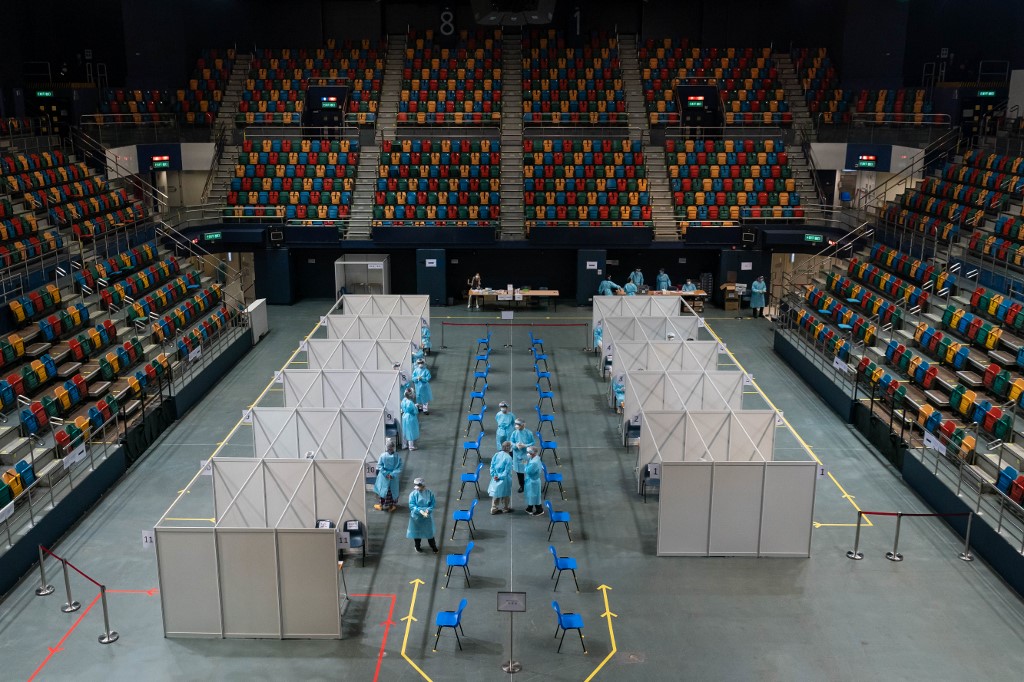Public confidence in the nucleic acid testing program for COVID-19 arranged by the government of the Hong Kong Special Administrative Region (HKSAR) is rising as the program received a wide welcome with at least 710,000 residents signing up — and it may be extended to meet demand.

A general view of a makeshift testing site to screen for COVID-19 coronavirus infections is seen at the Queen Elizabeth Stadium in Hong Kong on September 1, 2020. (Photo: AFP)
Some testing centers are fully booked and some residents showed up without registration, leading the HKSAR government to consider prolonging the seven-day universal community nucleic acid testing program.
The satisfactory reception from the public was a great relief, HKSAR Chief Executive Carrie Lam said after the first day of testing. "The participation of residents is a vote of confidence in the program," Lam said, calling for more to join for their own good and that of Hong Kong.
Secretary for the Civil Service Patrick Nip Tak-kuen believes that the number of appointments will gradually increase. The HKSAR government will consider whether to extend the testing program by seven days or just extend the dates for some individual testing centers, he said.
Hong Kong residents reached by the Global Times on Wednesday said the unexpectedly high registration is a slap in the face of some opposition forces that tried to discourage people from participating and alleged that the testing program backed by the central government would expose their personal data or even DNA.
"I registered for the nucleic acid test myself, also for my family members, after some tested friends said it was painless and quick," a Hong Kong resident surnamed Fan told the Global Times on Wednesday.
"I believe it's a good move by the government to curb the epidemic. I did not feel anything like some political groups claimed."
In light of false claims by some opposition groups, some Hong Kong residents wrote letters of complaint to government departments, including the Home Affairs Department. The letters said several district councilors such as Roy Tam Hoi-pong had been sending wrong signals to people on the street and in the media, and their behavior misled the public.
Jin Dongyan, a professor at the School of Biomedical Sciences at the University of Hong Kong, told the Global Times the testing program may not cover every resident of Hong Kong, but the participation of more than 710,000 people will still help anti-epidemic experts and decision makers to have a better understanding of community transmission.
With two months having passed since the third wave of the epidemic in Hong Kong began, domestic confirmed cases linger around 10-20 cases, and many cases are of unknown origin. The nucleic acid test is considered as the best way for the city to get the epidemic under control and resume normalcy, experts believed.


